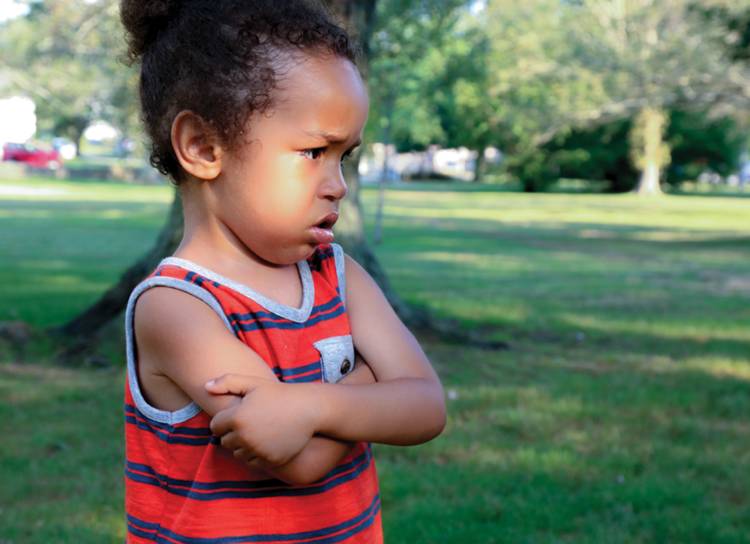Tips on Helping Your Child Learn to Cooperate

Key Takeaways
- Cooperation is the ability to balance one’s own needs with someone else’s.
- Cooperativeness grows across the first three years of life.
- To develop a cooperative spirit in children, we need to help them understand how our requests and rules are good for everyone.
Cooperation is the ability to balance one’s own needs with someone else’s. We often think of cooperation as children doing what adults want. That is compliance. True cooperation means a joint effort—a give and take that is mutually satisfying. To develop a cooperative spirit in children, we need to help them understand how our requests and rules are good for everyone.
Examples of Cooperation
The following examples shows how cooperativeness grows across the first three years of life:
- A 3-month-old wakes and begins to cry for milk. His mother, who is just putting the last dish in the dishwasher, says, “I’ll be with you in one minute, honey. I know you’re hungry.” The baby quiets a bit and sucks on his fingers. This baby is learning that while he may sometimes need to wait a bit, his needs are important and will be met.
- A 14-month-old happily drops socks and t-shirts from one laundry basket into the other. His grandmother says, “Thank you for helping me sort the laundry. Why don’t you come while I put it in the washing machine? I’ll lift you up so you can press the button. Then we’ll go for a walk.” This young toddler is learning that part of being in a family is working together to complete daily chores.
- Two 30-month-olds reach for the same bright red shovel in the sand box. One grabs, the other grabs. Tears follow, while each assures the other: “Mine!” One child’s father steps in and gently separates the two, handing a red shovel to one and a plastic bulldozer to the other. He shows them how one can bulldoze a pile of dirt, which the other can shovel into a bucket. These children are learning how to resolve conflict, cope with disappointment, and build relationships through cooperative play.
Tips for Helping Your Children Cooperate
 Below are ways you can help your child experience the rewards and develop the skill of cooperating.
Below are ways you can help your child experience the rewards and develop the skill of cooperating.
Take turns.
Between 6 and 9 months, babies can begin to engage in back-and-forth interactions. They also learn to imitate. This is a great time to encourage turn-taking as you play with your baby. When you place a block in the bucket, give him time to copy you. Take turns putting objects in the bucket and dumping them out. As he gets older, take turns putting pieces in the puzzle, or shapes in the shape-sorter. When it’s time to clean up, make a game of taking turns placing toys back on the shelf. These experiences are opportunities for him to feel the pleasure of accomplishing something as a team.
Explain your reasons for limits and requests.
At three years old, most children use and understand language well enough to handle simple explanations. Point out how rules benefit the whole family. “We all help clean up. Then we don’t lose our toys and we can find them again.” “When you help me put away the laundry, I finish quicker and then we can play.”
Take time to problem-solve.
You can help your older two- and three-year-olds come up with solutions to everyday dilemmas and encourage cooperation at the same time. Here are steps to try to help you teach problem-solving skills to your child:
- State the problem. “You want to draw on the wall but mommy says no.”
- Ask a question. “Where else could you draw?”
- Try a solution. Offer two options, both of which are acceptable to you—perhaps either paper or a cardboard box. If she insists she wants to draw on the refrigerator, set a limit. “I’ll put the crayons away until we agree on a place to draw.”
- Then re-direct. Most young children need help finding acceptable ways they can channel their desires. “You can put magnetic letters on the refrigerator.”
Do chores together starting at an early age.
Let your child grow up experiencing the benefits of cooperation. Together you can set the table, clean up toys, or wash the car. Point out the advantages of cooperating. “Look how fast we set the table. Now we have time to read a book before dinner.” “Boy was it fun to wash the car with you. You are a great scrubber! Look how bright and shiny you made our car!”
Give specific praise for cooperative efforts.
Point out why and how their contribution was important. This helps them recognize and value their skills. “You picked out all the white socks and put them together. That helped me finish the laundry quicker. Now we have more time to play.” “You put the books away on the shelf. Now it’s easier to choose one. Would you like me to read to you?”
Offer suggestions, not commands. Suggestions elicit cooperation.
Commands often evoke resistance. “It is cold so you will need to wear a hat. Would you like help putting it on, or do you want to do it yourself?” This is likely to bring about a better response than saying, “Put on your hat.”
Give your child choices while maintaining the rules.
“Teeth need to be brushed at bedtime. Do you want to do it before we read books or after?” Of course, they almost always choose to do it after, but they’re less likely to protest and the rule is still adhered to. Offering choices shows your child respect, and respect creates a sense of collaboration.


